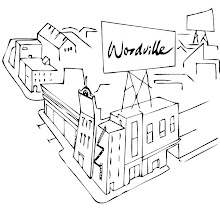
PR Crises occur around us all the time. There are the big ones that come to mind immediately, for example, when BP’s former Chief Executive declared: ‘I want my life back’ at the height of the Gulf of Mexico oil catastrophe last year. BP has since spent millions trying to repair its reputation.
Another more recent example, which is far from over, is the infamous ‘Hackgate’ – the scandal which embroiled Rupert Murdoch’s media empire when news broke that journalists at his flagship UK Sunday tabloid had been hacking phones for stories. News Corporation has been in PR crisis mode ever since, even dedicating all advertising space in the final edition of the now-defunct newspaper to charities. Many charities were so disgusted by the actions of the newspaper that they even refused free space in what was Britain’s highest selling Sunday newspaper. That’s bad news if I’ve ever seen it.
The riots and looting in London and the UK this week have seen many different PR crises erupt. Blackberry came under fire after it emerged that many perpetrators of the riots spread the word about targets using its BBM messaging service. London’s Metropolitan Police was forced to defend its ability to manage public disorder just a year away from the Olympics at a time when the world will be watching the capital. Even British PM David Cameron faced criticism for a sluggish response to the unfolding hysteria, as he decided whether to return from Tuscany where he was holidaying with his wife. The same went for Home Secretary Theresa May, George Osborne and the Mayor of London Boris Johnson, who were all holidaying abroad at the time.
So when bad news threatens to taint your brand, or a brand you’re responsible for, what should you do? Do you have a plan in place?
Of course each situation is different and should be approached with an individual strategy, but being prepared to communicate in a crisis is more important than ever, as organisations and individuals are under increasing levels of scrutiny. Companies and brands need to have processes in place to manage and respond to media interest in times of high stress. It’s a matter of anticipating what could go wrong, and having a plan of action and a ‘tool kit’ ready, so you can tackle the problem head on.
To make sure that you’re fully prepared to handle a crisis why not attend our course on ‘Reputation Management During a Crisis'? Click here for more details








